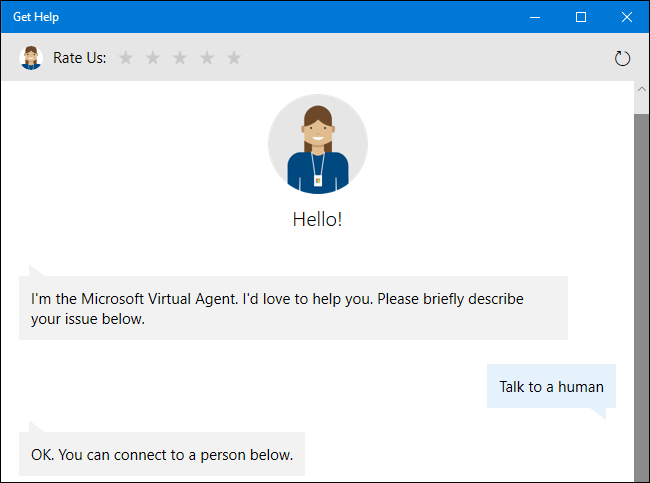How to Get Help in Windows 10

Windows 10 has a built-in Get Help app that will offer solutions to problems and even connect you to a human support person. That’s just one of Windows 10’s convenient built-in support options.
Use the “Get Help” App
Windows 10 includes a Get Help application that can provide solutions to many problems. You’ll find it in your Start menu. Click the Start button, type “Get Help,” and click the “Get Help” shortcut that appears or press Enter. You can also scroll through the list of applications at the left side of the Start menu and click the “Get Help” shortcut.

By default, this connects you to a “virtual agent.” Type what you want support with, and it’ll try to find you some information. You can also skip this part and type something like “talk to a human” to get connected with a Microsoft support person.

Press F1 for Help in Many Applications
The F1 key is the traditional way of getting help. If you have the focus on the Windows desktop and tap the “F1” key, Windows will perform a Bing search for “how to get help in windows 10.”
That’s not super useful, but the F1 key can still be helpful in many other applications. For example, pressing F1 in Chrome will open Google’s Chrome Support site. Pressing F1 in Microsoft Office will open Microsoft’s Office support site. Try it in whatever application you’re using.
Find Settings With the Start Menu
We recommend using the Start menu’s search feature if you’re looking for a setting or application in particular. Let’s say you need to connect to a VPN—you can just press the Windows key on your keyboard or click the Start button and type “vpn.” You’ll see a variety of VPN options in Windows.
Read the remaining 14 paragraphs
via: howtogeek.com

Post a Comment